Active travel can play a key role in the health of our communities here in the North and support the global efforts to tackle the challenges of climate change.
Walking and cycling benefit physical and mental wellbeing while also delivering on the wider agenda to decarbonise transport networks.
These modes of travel need to be considered as part of a ‘whole journey’ approach to connectivity and ensure a seamless travel experience.
We take into consideration the ‘first and last mile’ of the journey as part of the impact assessments on the North’s transport network, seeking a suitable standard for the passenger throughout their whole journey.
Complementary improvements in local transport infrastructure and services are needed to underpin the more strategic interventions, which includes making sure active travel is a viable option for a complete journey, or as part of a journey made by public transport.
This could be assisted by ensuring there are safe and accessible cycle and walking routes to transport links and central hubs, together with regular joining points, as well as having safe and secure lockers for bicycles or allowing bicycles on public transport where possible.
"A safe and inclusive transport network is a fundamental requirement. This determines how people use and perceive the transport network, especially when encouraging more people to use public transport and active travel modes."
We support partners to develop and promote measures that improve local sustainable travel options, such as strategic cycle networks, and encourage their use to make best use of the North’s existing and future strategic transport networks.
The region’s strategic transport network needs to be designed and developed to be accessible, ensuring individuals have a choice of services and opportunities to access work and leisure. This includes such measures as providing more secure and accessible cycle parking at the North’s public transport interchanges and railway stations.
Our Strategic Transport Plan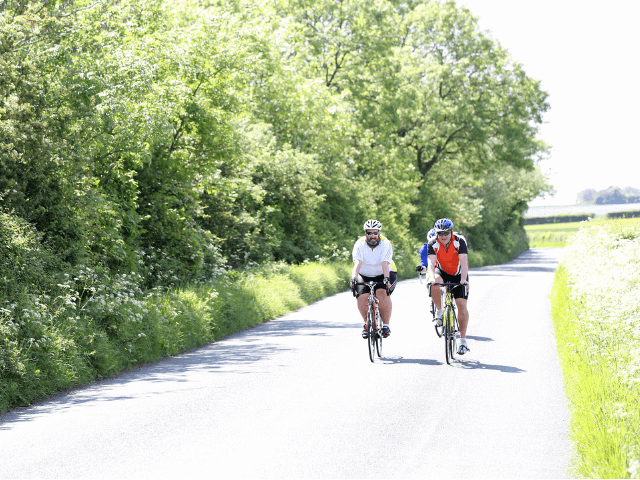

We have launched our Policy Position Statement on Active Travel, which was approved by our Board in February 2022.
It outlines our role in supporting partners in the development and implementation of walking and cycling schemes across the North of England. The document also sets out the challenges faced by transport authorities, the wider ambitions, and the key objectives that will feature within the revised Strategic Transport Plan.
Read the document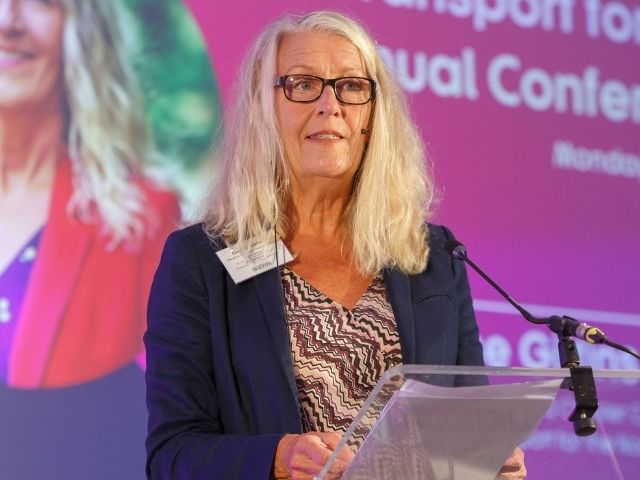
The pandemic has focused our minds on the environment and decarbonisation, with surges in demand for active travel within our towns and cities.
Working with Public Health England, we and our partners are committed to working towards providing a healthier environment for all.
We agree with The National Institute for Health and Care Excellence (NICE) when it says consideration should be given to the option of travelling by bicycle to public transport stops and stations. We should ensure that reliable public transportation services are accessible to all, including those with long-term health conditions, impairments, or disabilities
We support the delivery of a real step-change in the quality of cycling infrastructure and want to ensure the Strategic Transport Plan and Investment Programme provide a design opportunity for Delivery Partners, and Local Transport and Planning Authorities, to future-proof enhanced and new rail and road infrastructure for cycling and walking.
At Transport for the North, we recognise that it is the whole ‘door-to-door’ journey that matters. For our transport systems to work efficiently and effectively, it is crucial that pan-Northern road and rail networks are well integrated with local roads and public transport, as well as walking and cycling networks.
The benefits of adopting wider measures to decarbonise the transport network and tackle climate change include the potential to increase the uptake of active travel.
To achieve significant modal shift, investment will be required in bus, rail and cycling infrastructure to improve journey times and quality and ensuring these networks are accessible and affordable to all.
Increasing uptake in active travel will require policies and investments that promote comfort, safety and convenience and prioritise provision for sustainable schemes ahead of motorised transport, particularly the private car.
Our Decarbonisation agenda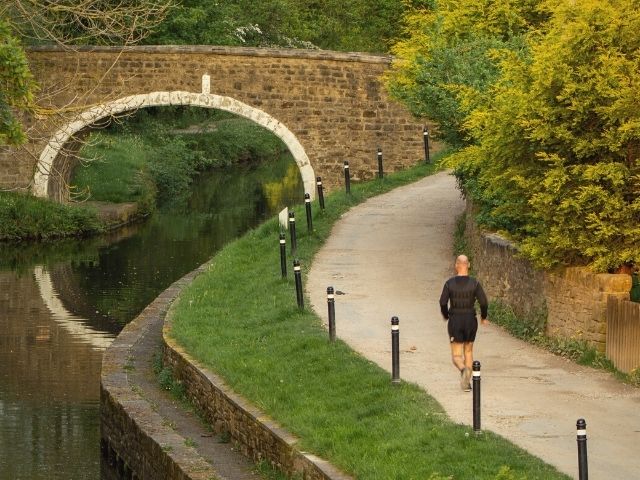
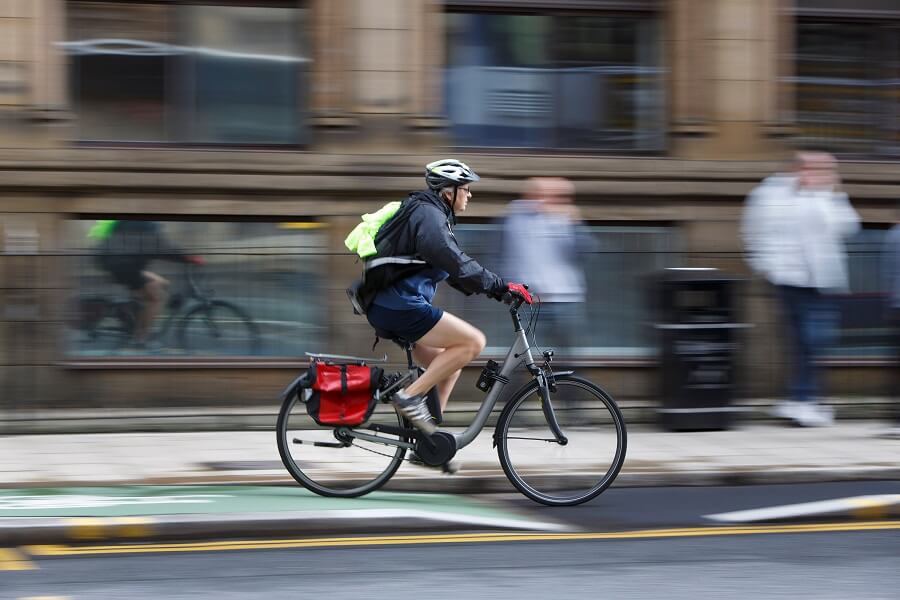
The Covid-19 pandemic brought to the fore many of the potential changes identified in the early stages of our Future Travel Scenarios work. This included increases in use of active travel, a step change in levels of remote working, and an acceleration in uptake of online shopping and, to some extent, greater use of electric bikes and scooters.
Under the Urban Zero Carbon scenario, we’d see a 30% demand in growth in Active travel by 2050.
A major shift to active travel also has the potential to improve the physical and mental wellbeing of users.
Our Future Travel ScenariosThe closing panel at our 2020 Annual Conference discussed the importance of Air quality, decarbonisation and active travel. Dame Sarah Storey, Active Travel Commissioner for the Sheffield City Region, and Chris Boardman, Cycling and Walking Commissioner at Greater Manchester Combined Authority, joined the discussion to look at the importance of not losing sight of investment in active travel.
Watch the full session
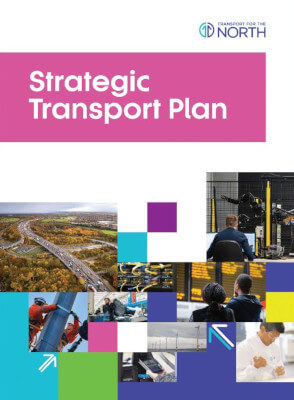
The first time the North has come together to outline the robust case for transformational transport investment across all of the North, to rebalance the UK economy
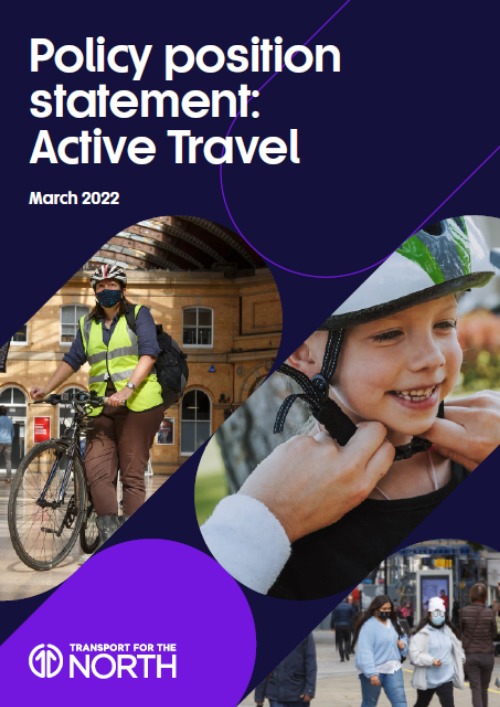
This document highlights the importance of enabling travel by foot and bicycle. It also identifies TfN's role, links to workstreams and TfN's suggested role in Active Travel
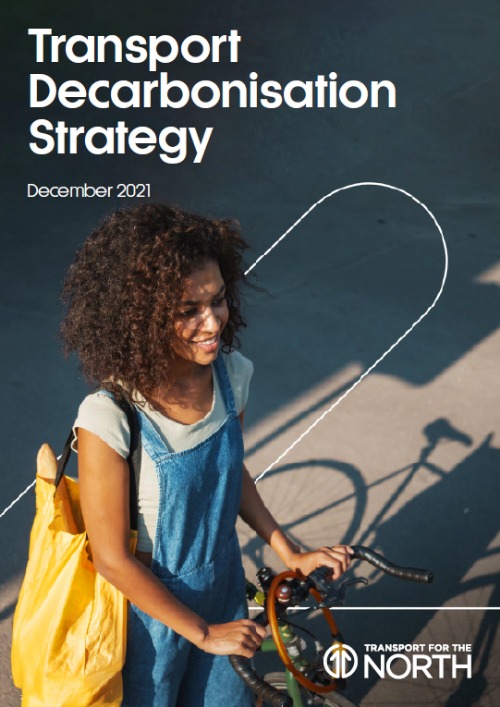
Our Transport Decarbonisation Strategy is the culmination of efforts from TfN and our partners across the North to create the tools, capability and evidence that will help sha
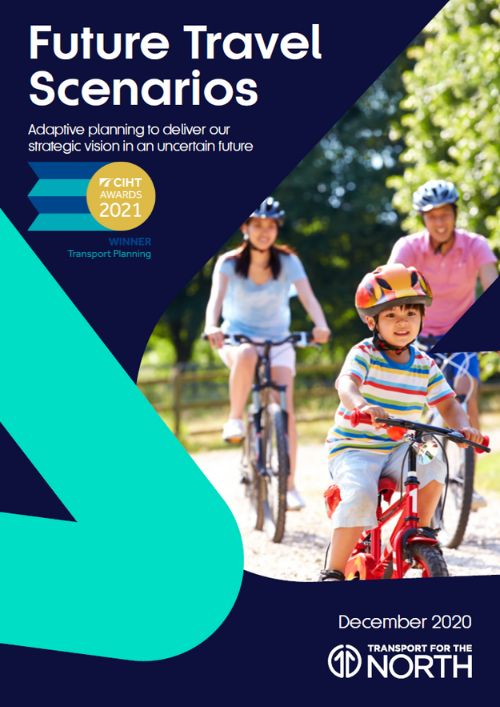
Adaptive planning to deliver our strategic vision in an uncertain future. Scenario planning is used to explore uncertainty about the future, providing enhanced information and
CLOSE POPUP [X]